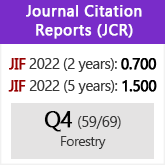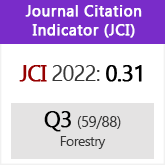Economics instruments for the sustainable management of Mediterranean watersheds
Abstract
Problems of unsustainable watershed use in the Mediterranean areas (overgrazing, forest degradation and clearing, soil erosion, fires, etc) often result from the reduced profitability of traditional land use systems, lack of clearly defined property rights, insufficient enforcement of existing rules, and lack of adequate economic instruments. The paper tries to analyze these problems from two complementary economic perspectives: the first one, based on a Cost-Benefit Analysis approach, highlight the gap between public interest and local private profitability in ordinary watershed management activities through three case studies in Tunisia. Once we have demonstrated that free market mechanisms are unable to allocate efficiently watershed resources, we assume a more normative perspective focusing on the implementation of voluntary instruments related to payments for environmental services. Due to the lack of experiences in the Mediterranean basin, we discus the results of a comparison among six case-studies of payments for water provision services in some developing countries underlying the role of transaction costs and social capital in the successful implementation of these new voluntary systems for the sustainable management of Mediterranean watershed resources.Downloads
© CSIC. Manuscripts published in both the printed and online versions of this Journal are the property of Consejo Superior de Investigaciones Científicas, and quoting this source is a requirement for any partial or full reproduction.
All contents of this electronic edition, except where otherwise noted, are distributed under a “Creative Commons Attribution 4.0 International” (CC BY 4.0) License. You may read here the basic information and the legal text of the license. The indication of the CC BY 4.0 License must be expressly stated in this way when necessary.
Self-archiving in repositories, personal webpages or similar, of any version other than the published by the Editor, is not allowed.















